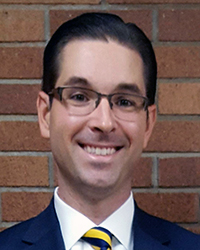

by David Flatt
Synopsis: In concluding the Sermon on the Mount, Jesus invites us to obey Him. Are we willing to accept this challenge?
Therefore whosoever heareth these sayings of mine, and doeth them, I will liken him unto a wise man, which built his house upon a rock: And the rain descended, and the floods came, and the winds blew, and beat upon that house; and it fell not: for it was founded upon a rock. And every one that heareth these sayings of mine, and doeth them not, shall be likened unto a foolish man, which built his house upon the sand: And the rain descended, and the floods came, and the winds blew, and beat upon that house; and it fell: and great was the fall of it (Matt. 7:24-27).
Jesus expects His message to be lived. In concluding this sermon, Jesus makes clear the difference between hearing and doing. To make this point further, Jesus described two men who each built a house. There was little difference between the two men as Jesus described them. Both men built a house. Both houses faced a storm. One man's house withstood the storm, while the other was destroyed.
Parables were relatable illustrations that Jesus used to convey profound spiritual truth (Matt. 13:10-17). Due to their simplicity, we may think they do not require much attention. Nonetheless, when we do not pay much attention to Jesus' teaching, we miss what He is trying to communicate.
What Jesus describes in this parable is strange. Notably, someone building a house on sand is strange and unusual. Who in his right mind would build a house on sand? People do not knowingly build a house on sand; yet, one of the men in Jesus' parable did just that. The outcome of the parable is not surprising. A storm came to both houses. The man whose house was built on a rock weathered the storm, while the man whose house was built on sand was destroyed.
Of course, this parable was not literally about building houses. This parable was about building our lives. We all work to build a life for ourselves. What makes the difference in our lives is the foundation upon which we build. We can choose to build our lives on rock or sand.
Foundations are essential and basic to any structure. Jesus wants us to use Him and His word as the foundation for our lives. While this sounds simple, we often struggle to do this.
Rather than making Jesus our foundation, we may try to use other footings. Like the old song, "Some build their hopes on the ever drifting sand; some on their fame or their treasure or their land."
We can build our lives on the foundation of Jesus or the foundation of self. We can build our lives on the foundation of the gospel or the foundation of worldly wisdom. We can build our lives on the foundation of the kingdom of heaven or the foundation of this world. The choice is ours. However, be sure of this—our foundation will be tested.
Like the two men in Jesus' parable, we all experience storms in life. As I write this, a hurricane is devastating the Bahamas. Of course, Jesus was not speaking about actual weather events. Instead, He referred to experiences in life which test our foundation—events which test our faith.
Many events in life can shake us to our foundation: sickness, financial hardships, employment issues, church problems, or facing death. In such times, our faith is tested and our foundation is exposed.
Some people can pick up the pieces of their lives and rebuild, while others cannot. Some can move forward in life; some are stuck in the malaise of the past. Some curse God and die; others refuse such hateful denial. What makes the difference? The foundation!
No one gets through life without experiencing storms. There are hardships everyone must face. There are some circumstances in life which are unavoidable and inescapable. There are some situations we must endure. Recognizing this reality, Jesus offers us a way to weather the storm. Through faith in Jesus and His word, we find strength, comfort, and hope in the fiercest storms. If we spend our lives building on sand, all our efforts will have been for nothing. As Solomon wrote, "Except the Lord build the house, they labor in vain that build it…" (Ps. 127:1). A vain life will result in a lost soul. Let us be wise and choose Jesus as the rock of our foundation.
And it came to pass, when Jesus had ended these sayings, the people were astonished at his doctrine: For he taught them as one having authority, and not as the scribes (Matt. 7:28-29).
As Jesus finished teaching, He left His audience in amazement. In one sermon, Jesus distinguished Himself from other teachers of His day. Specifically, Matthew notes Jesus' authority as being what impressed the people.
Jesus was not just giving His take on the Law of Moses. The faith that He authored was not a religion of self-help and good advice. Jesus boldly declared how everyone needed to be living if they wanted to become part of God's kingdom. Jesus commanded the people as He commands us today.
Jesus' authority must not be taken lightly. If we want to become part of His kingdom, we must submit to His rule. Submission is offered by living Jesus' message. In the aftermath of the Sermon on the Mount, Jesus had several encounters with people (Matt. 8). Each of the people who sought Jesus appealed to His authority. Each time, Jesus did something life-changing for them. If we appeal to the authority of Jesus in our lives, He can transform us.
In light of this sermon, we would be wise to consider our reaction. Everyone reacts in some way to Jesus and His message. It matters what we do with Jesus and His teaching. We cannot render the teachings of Jesus inconsequential through indifference or rejection. Some react with hostility. As proven by His resurrection, neither violence nor death can blunt the force of Jesus' teaching. Some respond with skepticism. Jesus invites investigation. For those with questions, Jesus has answers. Let us evidence a desire to obey. For honest seekers of the kingdom, Jesus promises that He can be found.
The best sermons are ones that challenge us—calling us to action. Without question, Jesus challenges us and calls us to action in this sermon. He challenges our morals and ethics. He challenges our modern understanding of discipleship. He challenges our motivations. He challenges our hearts. If we read these three chapters in Matthew, and are not challenged in our attitudes and behaviors, we have not been reading closely enough. Honest, self-evaluation is required. We would be wise to ask ourselves some questions.
Yes, Jesus challenges us in the Sermon on the Mount. Will we accept His challenge? Let us look deeply within our hearts to see if Jesus is reigning. Is He guiding our motives and governing our actions? If there is something amiss in our hearts, are we willing to use the precepts of the Master Teacher to make the needed corrections? For the sake of Jesus, His kingdom, and our citizenship, I hope and pray that we are so willing.
As we bring this two-year series to a close, I want to thank Mark Mayberry for allowing me the opportunity to consider this most transformative of sermons in Truth Magazine. I have grown in my appreciation for Mark and the good work he does in the kingdom. I am also grateful to Howard Colvin, Mike Willis, and Howard Whittlesey for their help in the production of these articles. Of course, I want to thank all of you who have read this series. I hope these articles have renewed your interest in the Sermon on the Mount, challenged your thinking, and encouraged your determination to grow the kingdom by glorifying its King. May God bless us as we seek to bring Him glory.
Author Bio: David and his family began laboring with the Fry Road Church of Christ in Houston, TX in 2019. The church website is fryroad.org. He can be reached at dflatt85@yahoo.com.

